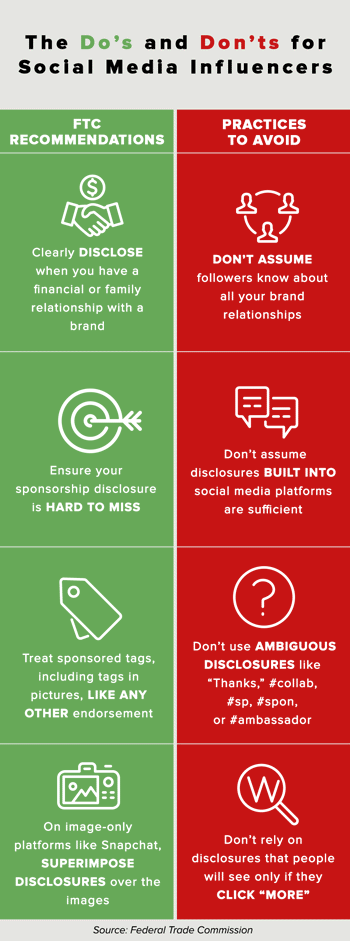 Trevor “TmarTn” Martin and Thomas “Syndicate” Cassell, two social media influencers who are widely followed in the online gaming community, have settled Federal Trade Commission charges that they deceptively endorsed the online gambling service CSGO Lotto, while failing to disclose they jointly owned the company.
Trevor “TmarTn” Martin and Thomas “Syndicate” Cassell, two social media influencers who are widely followed in the online gaming community, have settled Federal Trade Commission charges that they deceptively endorsed the online gambling service CSGO Lotto, while failing to disclose they jointly owned the company.
They also allegedly paid other well-known influencers thousands of dollars to promote the site on YouTube, Twitch, Twitter, and Facebook, without requiring them to disclose the payments in their social media posts.
The Commission order settling the charges requires Martin and Cassell to clearly and conspicuously disclose any material connections with an endorser or between an endorser and any promoted product or service.
“Consumers need to know when social media influencers are being paid or have any other material connection to the brands endorsed in their posts,” said FTC Acting Chairman Maureen Ohlhausen. “This action, the FTC’s first against individual influencers, should send a message that such connections must be clearly disclosed so consumers can make informed purchasing decisions.”
Also today, the FTC announced that staff has both sent warning letters to 21 social media influencers it contacted earlier this year regarding their Instagram posts, and updated staff guidance for social media influencers and endorsers.
According to the FTC, beginning in late 2015, Martin, Cassell, and their company, CSGOLotto, Inc., operated and advertised the csglotto.com website. The CSGO Lotto name was based on Counter-Strike: Global Offensive, also known as “CS: GO,” an online multi-player, first-person shooter game. The game uses collectible virtual items called “skins” that can be used to cover weapons in distinctive patterns. Skins can be bought, sold, and traded for real money. CSGO Lotto enabled consumers to gamble, using skins as virtual currency.
Martin is the company’s president and Cassell is its vice president. As alleged in the complaint, each posted YouTube videos of themselves gambling on their website and encouraging others to use the service. Martin’s videos had titles such as, “HOW TO WIN $13,000 IN 5 MINUTES (CS-GO Betting)” and “$24,000 COIN FLIP (HUGE CSGO BETTING!) + Giveaway.”
Cassell posted videos with titles such as “INSANE KNIFE BETS! (CS:GO Betting),” and “ALL OR NOTHING! (CS:GO Betting).” In all, Cassell’s videos promoting the CSGO Lotto website were viewed more than 5.7 million times. Martin and Cassell allegedly also promoted the site on Twitter without adequately disclosing their connection to CSGO Lotto.
According to the FTC’s complaint, Martin, Cassell, and their company also had an “influencer program” and paid other gaming influencers between $2,500 and $55,000 to promote the CSGO Lotto website to their social media circles, while prohibiting them from saying anything negative about the site.
The Commission’s complaint alleges that Martin, Cassell, and their company misrepresented that videos of themselves and other influencers gambling on the CSGO Lotto website and their social media posts about the website reflected the independent opinions of impartial users of the service. The complaint charges that, in truth, Martin and Cassell are owners and officers of the company operating the CSGO Lotto website and the other influencers were paid to promote the website and were prohibited from impugning its reputation.
Finally, the complaint alleges that a number of Martin’s, Cassell’s, and the gaming influencers’ CSGO Lotto videos and social media posts deceptively failed to adequately disclose that Martin and Cassell are owners and officers of the company operating the gambling service, or that the influencers received compensation to promote it.
The proposed order settling the FTC’s charges prohibits Martin, Cassell, and CSGOLotto, Inc. from misrepresenting that any endorser is an independent user or ordinary consumer of a product or service. The order also requires clear and conspicuous disclosures of any unexpected material connections with endorsers.
New Instagram Influencer Warning Letters
Following up on the more than 90 educational letters FTC staff sent to social media influencers and brands in April of this year, the staff has sent warning letters to 21 of the influencers previously contacted. The earlier educational letters informed the influencers that if they are endorsing a brand and have a “material connection” to the marketer, this must be clearly and conspicuously disclosed, unless the connection is already clear from the context of the endorsement.
The warning letters cite specific social media posts of concern to staff and provide details on why they may not be in compliance with the FTC Act as explained in the Commission’s Endorsement Guides. For example, some of the letters point out that tagging a brand in an Instagram picture is an endorsement of the brand and requires an appropriate disclosure.
The letters ask that the recipients advise FTC staff as to whether they have material connections to the brands in the identified posts, and if so, what actions they will be taking to ensure that all of their social media posts endorsing brands and businesses with which they have material connections clearly and conspicuously disclose their relationships. The FTC is not disclosing the names of the 21 influencers who received the warning letters.
Updated Guidance to Influencers and Marketers
The Commission today also issued an updated version of The FTC’s Endorsement Guides: What People are Asking, a staff guidance document that answers frequently asked questions. Previously revised in 2015, the newly updated version includes more than 20 additional questions and answers addressing specific questions social media influencers and marketers may have about whether and how to disclose material connections in their posts.
The new information covers a range of topics, including tags in pictures, Instagram disclosures, Snapchat disclosures, obligations of foreign influencers, disclosure of free travel, whether a disclosure must be at the beginning of a post, and the adequacy of various disclosures like “#ambassador.”
The Commission vote to issue the administrative complaint and to accept the consent agreement was 2-0. The FTC will publish a description of the consent agreement package in the Federal Register shortly.
The agreement will be subject to public comment for 30 days, beginning today and continuing through October 10, 2017, after which the Commission will decide whether to make the proposed consent order final. Interested parties can submit comments electronically by following the instructions in the “Invitation to Comment” part of the “Supplementary Information” section.
NOTE: The Commission issues an administrative complaint when it has “reason to believe” that the law has been or is being violated, and it appears to the Commission that a proceeding is in the public interest. When the Commission issues a consent order on a final basis, it carries the force of law with respect to future actions. Each violation of such an order may result in a civil penalty of up to $40,654.
The Federal Trade Commission works to promote competition, and protect and educate consumers. You can learn more about consumer topics and file a consumer complaint online or by calling 1-877-FTC-HELP (382-4357). Like the FTC on Facebook, follow us on Twitter, read our blogs and subscribe to press releases for the latest FTC news and resources.

